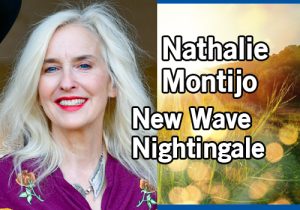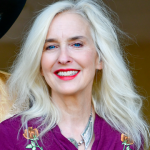Today’s tech environment impacts mental health
 (Oct. 23, 2022) — If you are not feeling at your most emotionally stable, and have not for the past couple of years, rest assured you are in good company.
(Oct. 23, 2022) — If you are not feeling at your most emotionally stable, and have not for the past couple of years, rest assured you are in good company.
According to the National Institute of Mental Health (NIMH), 21% of Americans age 18 or older met the criteria of having “Any Mental Illness” (AMI) in 2020. Although later statistics are not yet available, it is a fair bet that things have not improved significantly.
AMI includes any emotional, mental and/or behavioral disorder. The severity of illnesses included in the AMI definition range from causing negligible difficulty to the individual’s ability to function all the way to crippling impairment.
The prevalence appears greater in females (25.8%) than males (15.8%). There is a staggering disparity in the rate of mental illness among age groups, with the highest concentration found in Americans 18-25 (30.6%).
The prevalence in those 26-49 was 25.3%, and those at the older end of the spectrum (50+) had a rate of 14.5%.
Mental health is determined by many factors, including genetics, environment, economics, relationships, community support, societal pressure and trauma. While these have always been present, one could argue that the whole picture has never looked anything like it does today.
Basic foundational realities such as one’s physical address and concrete resources (food, money) have the same impact on a young person in 2022 as they did on one in 1922, but there are a lot more “realities” at play.
Technology is such an overarching part of nearly everyone’s life that it is difficult to remember a time before. The cell phone, which is probably within 6 inches of your hand right now, is more powerful than the original huge Big Blue computer kept in a refrigerated room at IBM and discussed in hushed and reverent tones. The information Baby Boomers and Gen Xers drove to the library to look up in card catalogs and hard cover texts is now two clicks away and generally much more extensive.
While the Computer Age has made truly incredible things simply routine, it has also exacted a terrible price on the young. One of the advantages of being older and less tech savvy is the ability to differentiate between reality and fantasy. Those above a certain age (perhaps 45?) look at Instagram and see play acting – low-level theater.
For those who came of age in the ’70s to ’90s, there was always a fashion magazine to open, flip through and experience immediate feelings of inadequacy in comparison to the images portrayed. However, the lines were clearly drawn, and one had some agency. Looking at fashion magazines was not an inevitable part of daily life for everyone. Being online is, for practical purposes, not optional – especially for Gen Zers who conduct many if not most relationships in the virtual arena.
So how can we help this unprecedented group stay safe and sane?
“The good news is that Gen Z has normalized open conversations about mental health, and they are also prioritizing self-care,” notes psychologist and trauma specialist Mark Montijo. He believes that the best way concerned families and friends can help is to be present and listen.
“Listening with a genuine and authentic presence is one of the most powerful interventions we can offer.h Wen we listen generously to people, they can hear the truth in themselves.”
Montijo and other mental health professionals stress that it is not necessary to answer with “magic words” aimed at providing a solution. He recommends simply being present, listening generously and withholding judgment.
Please send your comments and question to Nathalie at newwavenightingale@gmail.com.

Nathalie Montijo
Nathalie Raven Archangel-Montijo holds a rather interesting array of degrees and certifications, including master’s in nursing and traditional Chinese medicine (TCM). She has post-master certification as an adult geriatric primary care nurse practitioner (AGPCNP) and a license to practice acupuncture in California (L.Ac). To round all that out, she is certified in infection prevention and control (CIC) and as an advanced certified Hospice and palliative care nurse (ACHPN).
She also performs in the outlaw country band, Nineteen Hand Horse.
